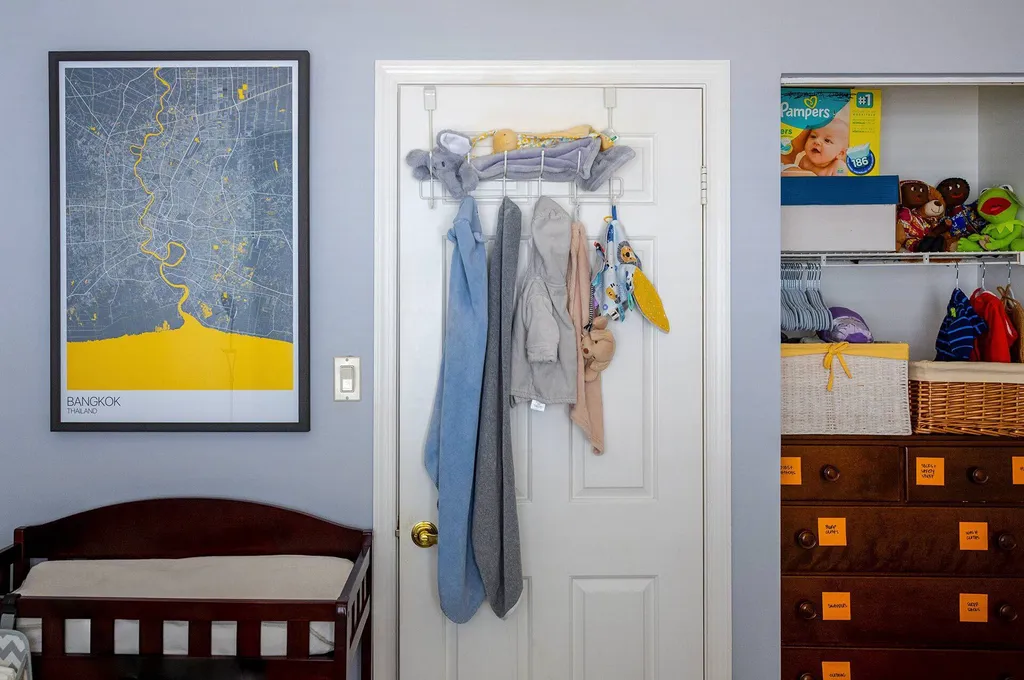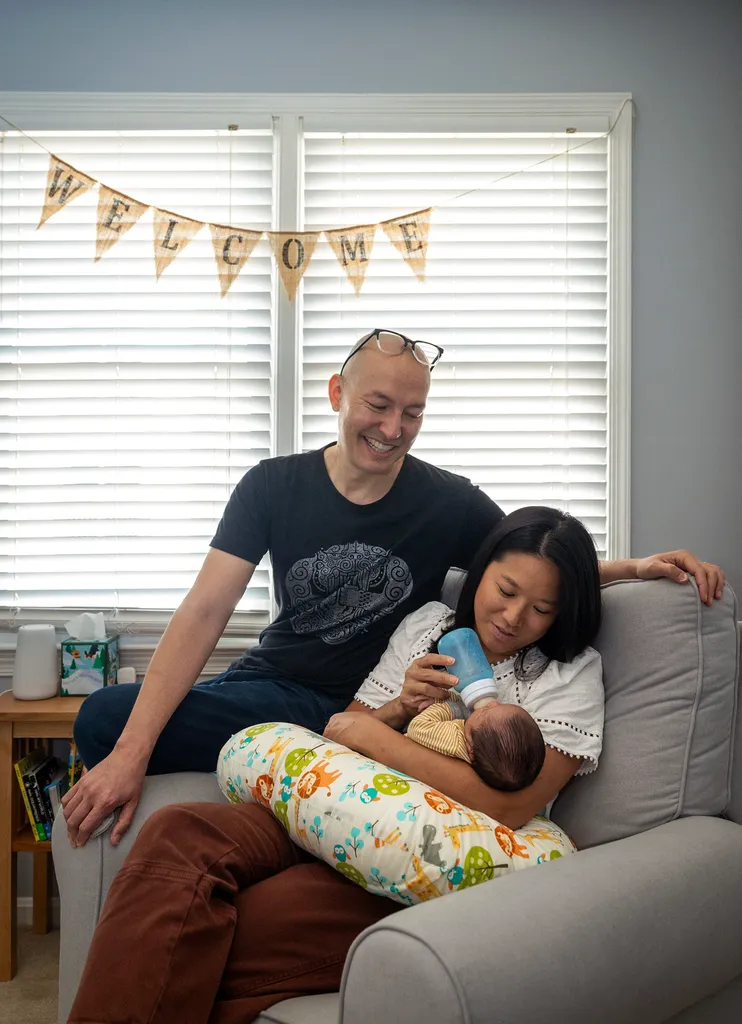- June 13, 2025
- By Karen Shih ’09
The someday-nursery was still a home office when Pete and Boosaba Tantisunthorn ’10 got the life-altering news: After years of longing for a child, they had been selected as adoptive parents to a baby and could bring him home in just 10 days.
Boosaba, associate director of development for the University of Maryland’s Division of Student Affairs, was a churning mix of hope, excitement—and a little panic. They had nothing a newborn would need.
She emailed the UMD Parents listserv on May 23 hoping to just get a few essentials. What she received was an outpouring. Faculty and staff she never met, all from the roughly 800-person group connecting UMD campus community members with kids, offered everything she needed. That ranged from a crib to baby monitor to a diaper pail—some even dropped off big items at their house—and it’s all catalogued in an extensive spreadsheet. The Tantisunthorns now have enough swaddles, bibs and clothing (including baby Terp gear, of course) to last them the next two years. Folks without items to pass on sent food delivery gift cards and well wishes, and other adoptive parents offered advice and friendship.

“We feel super fortunate. … I didn’t know the Maryland ‘village’ was
so strong,” said Boosaba, noting that the only thing they’ve had to buy
in the first few days is formula, giving them time to adjust and bond.
“We're excited that he's here in time for Father's Day.”
The Tantisunthorns’ journey to parenthood was complicated. After getting married in 2016, they waited a few years to try to conceive. But in the midst of the pandemic came the heartbreak of not one, but three miscarriages. They turned to a couples therapist for support, and as they processed their grief, they came to a realization: Neither of them was set on having a biological child. In fact, they’d always talked about adopting children later on—and now, they could turn to that option right away.
They connected with the Barker Adoption Foundation, based in Bethesda, Md., which places children from Maryland, Washington, D.C., and Virginia. They embarked on an extensive (and expensive, about $50,000) process, where every aspect of their lives was scrutinized, including finances, medical backgrounds and even the safety of smoke detectors and plugs in their house. They enrolled in six-hour Zoom classes covering attachment, children’s developmental stages, transracial adoption, socio-emotional bonding and more.
“We finished the home study, and we’re like, ‘It’s unreal that biological parents don’t have to do this,’” said Pete.
Finally, in December 2024, they were accepted into an adoption waiting pool, both for children in the D.C. metro area as well as Florida, giving them better odds. Every few weeks, they eagerly considered adoption profiles and shared their own photo-filled booklet to find a match.
Then came May 20. Boosaba was at work in the Clarence M. Mitchell Jr. Building when she got a call from their social worker with an urgent message. She was at a hospital in the D.C. metro area where a baby boy had been born a day earlier, and his birth mom had chosen the Tantisunthorns. Did they want to speak to her?
Boosaba was shocked. They had imagined having a few months to prepare, maybe flying out to Florida.
She welled up, voice catching, as she recounted the conversation. She thanked the birth mom for her “courageous and brave decision,” and asked, “Why did you choose us?”

Because they seemed “goofy and kind,” came the answer. And unexpectedly, because of their heritage.
Throughout the adoption process, the Tantisunthorns, who are mostly of Thai background, had been open to a baby of any racial background. Asian Americans make up just 7% of the U.S. population, and the probability of matching with one seemed incredibly low.
“This clearly was supposed to happen,” said Pete. “We were so thrilled.”
Now, they’re looking forward to three months of parental leave together at home, bonding as a family. Their colleagues at UMD and Fairtrade America, where Pete works, have been “incredibly understanding and super excited for us,” said Pete. Every time they grab a burp cloth or mittens from the full-to-the-brim dresser, sterilize a bottle in their kitchen or pull out a multilingual children’s book, they’re reminded of the generosity of the UMD community, including fellow alums and even donors (one dropped off a golden, Terp-themed stork flag to hang outside their house).
“We were running on pure adrenaline,” she said. “Now that he’s here, we can finally relax.”
Topics
Campus & Community